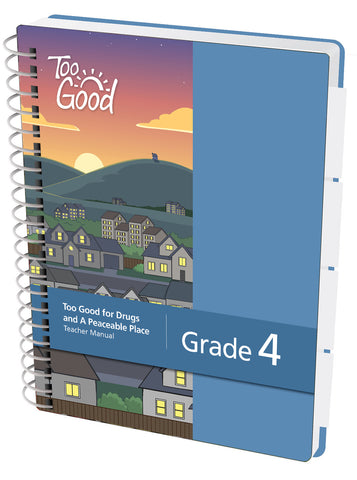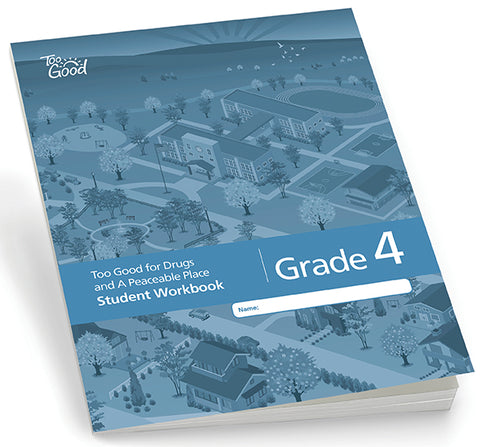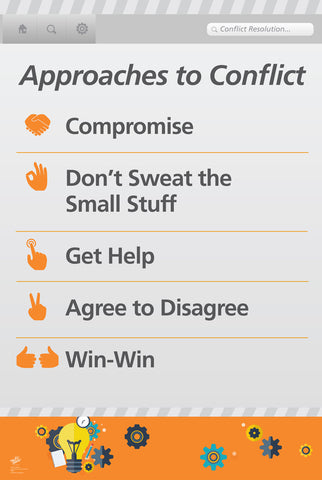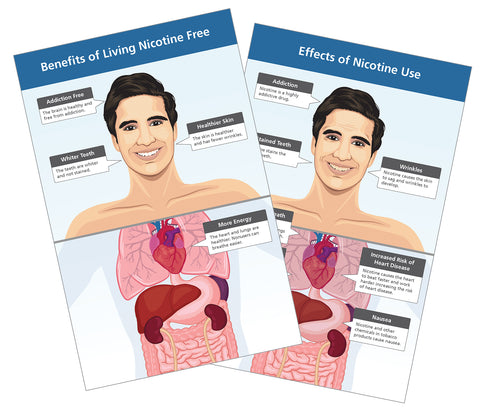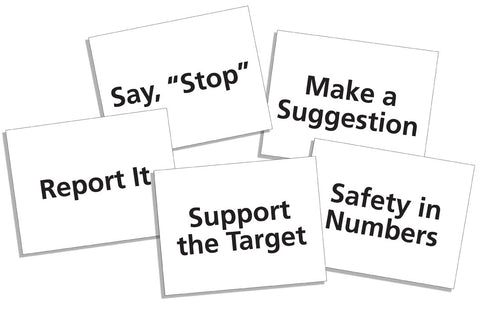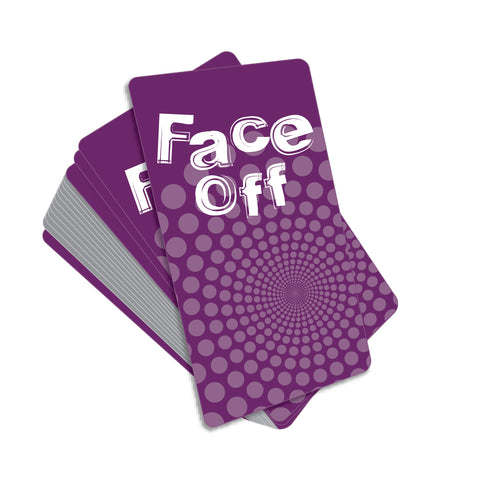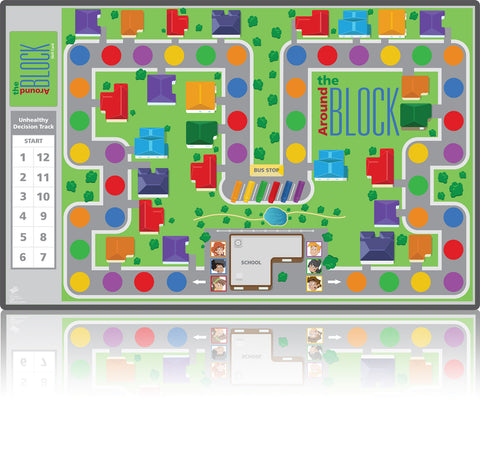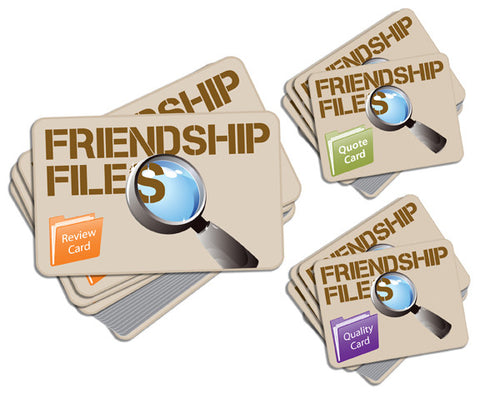The Too Good Curriculum Kit includes everything you need to teach the lessons:
- Teacher Manual
- 30 Student Workbooks
- Goal Setting Poster
- Decision Making Poster
- Peer Pressure Refusal Strategies Poster
- Approaches to Conflict Poster
- Picture of Health Puzzles
- Bullying Response Strategy Display Cards
- Face Off Activity Cards
- I'm All Ears Activity Cards
- No Butts About It! Activity Cards
- Play it Safe Activity Set
- Pop Up Activity Cards
- Say What? Activity Cards
- Around the Block Activity Set
- Friendship Files Activity Set
- Game Pawns and Die
Curriculum Features include:
- Scripted Design - Fifteen 45-minute fully scripted, research-based lessons conveniently presented in a tabbed spiral-bound book, making them easy to use and enjoyable to teach.
- Comprehensive Lesson Planner with clearly-stated, measurable objectives, topic rationale, and allotted activity times.
- Lesson Resource Pack with Activity Visual Displays, Activity Instructions, Home Workouts, and Evaluation Instruments in a downloadable for display or print format.
- Parent Component - “Home Workout: Exercises for Adults and Kids,” to extend prevention skills and messages into the home.
- Looking for More? - Each lesson includes cross-curricular lesson extenders with suggestions for infusion, recommended reading, and additional activities for reinforcing important concepts and skills.
- Evaluation Instruments to measure student outcomes and process outcomes including implementation effectiveness and fidelity of implementation as well as student knowledge, attitudes, and behavior.
- Comprehensive Pre-Delivery Training Component covering Character Education and Normative Education concepts, Fidelity of Implementation, lesson design and instruction methodology, as well as guidance for facilitating discussions about more complex lesson topics.
- Logic Model including the program’s theory of change and the proven strategies incorporated into the lessons.
- Strategies and methods to build family and school connections to reinforce the healthy social and emotional development of the students.
Comprehensive Prevention Education
Too Good for Drugs and A Peaceable Place together form a universal substance use prevention, violence prevention, and character education program series that promotes the development of the skills, attitudes, and behaviors consistent with positive, pro-social living to encourage healthy emotions management and actions, resistance to substance use and medicine misuse, respect between peers, and self-awareness and social awareness to foster supportive and respectful learning environments.
Too Good offers developmentally appropriate curricula for Kindergarten through High School. Each grade level builds on previous levels developing the skills sequentially with engaging, age-appropriate lessons and activities.
Mitigates Risk Factors and Builds Protective Factors
Too Good focuses on the risk factors and negative social norms that can be positively affected in the classroom: favorable attitudes toward substance use, violence, and other problem behaviors and friends who engage in problem behavior.
Too Good builds protection within the student by:
- Providing opportunities for pro-social involvement
- Establishing positive norms including healthy beliefs and clear standards
- Promoting bonding to pro-social peers
- Increasing self-efficacy and interpersonal skills
- Establishing No-Use Norms
Too Good uses skill development to mitigate the risks associated with problem behaviors including:
- Poor Social Skills
- Peer Rejection
- Inappropriate Social Behaviors
- Favorable Attitudes Toward Drug Use
- Low Perception of Harm
- Friends Who Engage In Problem Behaviors
Strengths-Based Skills Development
TGFDV introduces and develops self-efficacy and interpersonal skills linked with healthy development and academic success to promote self-awareness and social awareness:
- Setting Reachable Goals
- Making Responsible Decisions
- Identifying and Managing Emotions
- Communicating Effectively
- Bonding with Prosocial Peers
Additional skills development and application concepts built into the course to promote positive social development and resistance to substance use:
- Conflict Resolution
- Anger Management
- Respect for Self and Others
- Identifying and Managing Bullying Situations
- Problem Solving
- Stress Management
- Peer Pressure Refusal
- Safe Use of Medicines
- Effects of Alcohol on the Brain and Body
- Effects of Nicotine on the Brain and Body
Develops Core Character Traits
TGFDV promotes character development by strengthening nine character traits:
- Caring
- Cooperation
- Courage
- Fairness
- Honesty
- Respect
- Responsibility
- Self-discipline
- Integrity
Understanding the Logic Model
The Mendez Foundation developed Logic Models for Too Good to map out the Theory of Change and demonstrate graphically the assumptions that drive Too Good. The logic model communicates an "if-then" message of what changes the program intends to produce. It helps to make the connections among the target group, goals, strategies, objectives and planned program results and lays out what the program is expected to achieve and how it is expected to work.
TGFV Logic Model TGFD Logic Model
Research Design
Each of the Too Good evaluation studies were conducted by third-party researchers and used randomized treatment-control group designs (pre-test/post-test, 20-week post-test, or one-year follow-up). The Researchers examined pre-test equivalence between treatment and control groups; potential bias of loss of student data over time; quality of program implementation; and estimates of reliability and validity of assessment tools.
The award-winning Too Good programs have undergone rigorous, independent evaluation studies to measure their effects on students' skills, attitudes, intentions, and behaviors. Studies have been published in peer-reviewed journals and presented at national evaluation conferences. These studies demonstrate the effectiveness of Too Good.
2000 Research Report
2001 Research Report
2003 Research Report
2005 Research Report
2007 Research Report
2013 Research Report
| Organization/Agency | TGFD K-8 | TGFV K-8 | TGFD&V High School |
|---|---|---|---|
| What Works Clearinghouse: U.S. Department of Education, Institute of Education Science | Positive effects on behavior View Report | Positive effect on behavior & knowledge, attitudes & values View Report | Positive effect on behavior & knowledge, attitudes & values View Report |
| CASEL: Collaborative for Academic, Social, and Emotional Learning | Not Yet Rated | Elementary SELect Program View Report | Not Yet Rated |
| NREPP: National Registry of Evidence-Based Programs & Practices | Reviewed evaluation View Report | Reviewed evaluation View Report | Reviewed evaluation View Report |
| CEBC: California Evidence Based Clearinghouse for Child Welfare | TGFD Grade 6 Scientific Rating 2 - Supported by Evidence View Report | Not Yet Rated | Not Yet Rated |
| OJJDP: Office of Juvenile Justice & Delinquency Prevention | Promising program View Report | Exemplary program View Report | Exemplary program View Report |
| Promising Practices Network: Programs that Work | Screened program View Report | Screened program View Report | Screened program View Report |
| SAMHSA: Substance Abuse & Mental Health Services Administration | Model program | Model program | Model program |
Awards
Too Good programs have earned recognition and acclaim for their impact in promoting safer and healthy youth and communities.
- Florida Alcohol and Drug Abuse Association's (FADAA) Best Practices Award
- The American Medical Association's National Congress on Adolescent Health
- The President's Child Safety Partnership
- Southeast Regional Center for Drug-Free Schools and Communities Shining Star Award
- Our programs received a high rating in "Drug Strategies"
Other Recognition
Recognition for Too Good for Drugs™ in Drug Strategies "Making the Grade": "Some very strong elements in this very detailed, 10 session per year curriculum. Provides developmentally appropriate information about alcohol, tobacco and marijuana. Normative education activities creative and compelling, new ideas for games. Includes no-use pledge."
Recognition for Too Good for Violence in Drug Strategies "Safe Schools, Safe Students": "A delightful package of materials (that) complements this highly interactive 4-9 session program. Strongly focused on critical skill areas. Extremely detailed instructions for teachers. Very complete."




